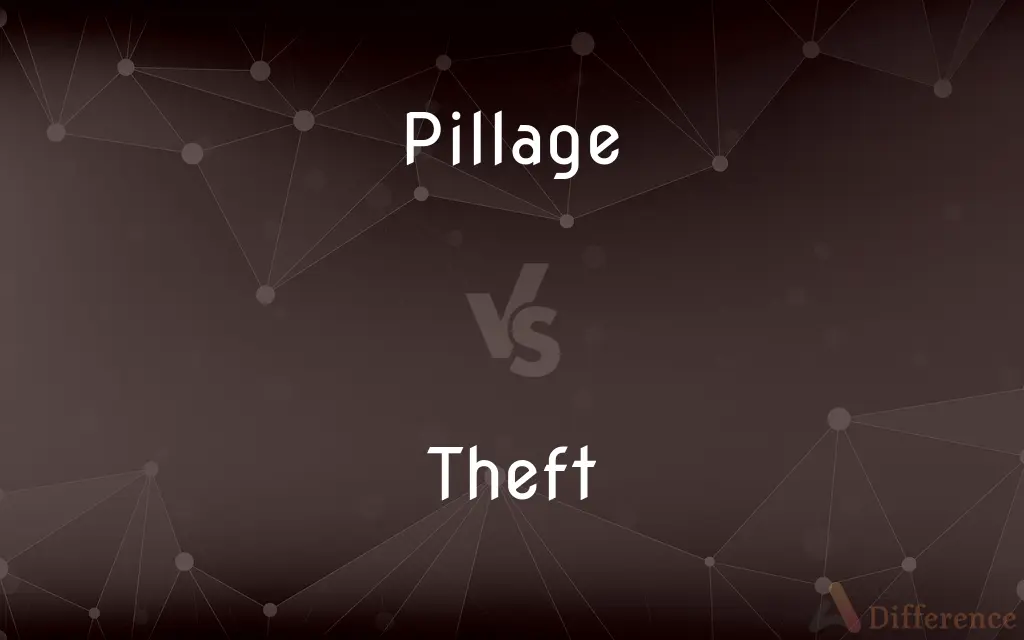Pillage vs. Theft — What's the Difference?

Difference Between Pillage and Theft
ADVERTISEMENT
Compare with Definitions
Pillage
To take as spoils.
Theft
Theft is the taking of another person's property or services without that person's permission or consent with the intent to deprive the rightful owner of it. The word theft is also used as an informal shorthand term for some crimes against property, such as burglary, embezzlement, larceny, looting, robbery, shoplifting, library theft or fraud.
Pillage
To rob of goods by force, especially in time of war; plunder.
Theft
The action or crime of stealing
The latest theft happened at a garage
He was convicted of theft
Pillage
To take spoils by force.
ADVERTISEMENT
Theft
The unlawful taking of the property of another; larceny
The prevention of theft.
Pillage
The act of pillaging.
Theft
An instance of such taking
Several car thefts.
Pillage
Something pillaged; spoils.
Theft
(Obsolete) Something stolen.
Pillage
(ambitransitive) To loot or plunder by force, especially in time of war.
Theft
The act of stealing property.
Bike theft is on the rise
A suspect was arrested for the theft of a gold necklace.
Pillage
The spoils of war.
Theft
The act of stealing; specifically, the felonious taking and removing of personal property, with an intent to deprive the rightful owner of the same; larceny.
Pillage
The act of pillaging.
Theft
The thing stolen.
If the theft be certainly found in his hand alive, . . . he shall restore double.
Pillage
The act of pillaging; robbery.
Theft
The act of taking something from someone unlawfully;
The thieving is awful at Kennedy International
Pillage
That which is taken from another or others by open force, particularly and chiefly from enemies in war; plunder; spoil; booty.
Which pillage they with merry march bring home.
Pillage
To strip of money or goods by open violence; to plunder; to spoil; to lay waste; as, to pillage the camp of an enemy.
Mummius . . . took, pillaged, and burnt their city.
Pillage
To take spoil; to plunder; to ravage.
They were suffered to pillage wherever they went.
Pillage
Goods or money obtained illegally
Pillage
The act of stealing valuable things from a place;
The plundering of the Parthenon
His plundering of the great authors
Pillage
Steal goods; take as spoils;
During the earthquake people looted the stores that were deserted by their owners
Share Your Discovery

Previous Comparison
Szechuan vs. Sichuan
Next Comparison
Peep vs. Beep














































